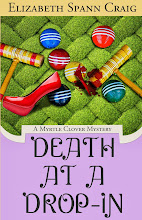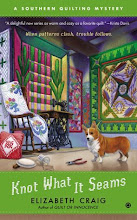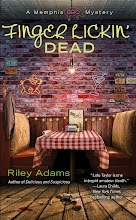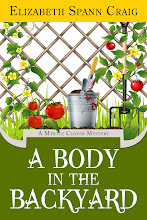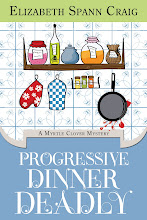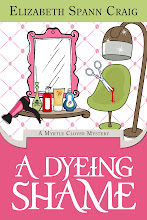by Jodie Renner, Editor and Craft-of-Writing Author, @JodieRennerEd
Have you ever been engrossed in a novel
when suddenly the author interrupts the story to give you background on a
character, or detailed technical information about something? Or starts waxing
eloquent about a related topic or a pet cause of theirs?
Savvy authors know that readers choose
fiction to be entertained and swept away by a compelling story. Halting the
plot to give them information on a technical subject or issue, or even to
clarify something as an author aside, jolts them out of the fictive dream,
interrupts the story line, slows down the pace, and just feels patronizing.
Author intrusions and info dumps come in
various shapes and sizes, but whatever their form, they can be perceived as an
obvious and clumsy attempt by the author to quickly and easily impart some
facts, clarifications, or personal opinions directly to the reader. For this
article, we’ll leave out a discussion of the pitfalls of too much character
backstory, especially early on. For now, we’ll just talk about other kinds of
author intrusions.
SOME
COMMON TYPES OF AUTHOR INTRUSIONS TO AVOID
~ Info
dumps
Readers like to stay immersed in the
story, not be pulled out of it to be given a lengthy explanation of something
as an aside by the author. This can include long, detailed explanations of a
specific type of gun, for example, or stopping the story to describe in detail
how fingerprints are retrieved, processed, analyzed, and fed into data systems.
Yes, do your research, for sure. But pick
and choose what you actually share with your readers, and blend the info in in
a natural way, filtered through the point of view of the viewpoint character or
revealed in the course of dialogue, preferably with some tension and attitude
thrown in.
~
Soap-boxing about an issue or cause
Maybe you’d like to increase
consciousness about worthy topics such as the plight of whales or the lack of
clean water worldwide, or unfair treatment of minorities, or lack of green
spaces.
Sure, go ahead and insert allusions to
social issues here and there in your novel, as long as you have a character who
is passionate about that issue and knowledgeable. It can work in small doses,
as long as you don’t go on so long about it that it comes across as preaching.
And of course it needs to fit naturally in the scene and match the character’s
personality, politics and thoughts.
~
Lecturing in disguise
Say you want to write a Raiders of the Lost Ark type of adventure
story because you’re passionate about Aztecs and Aztec ruins and want to tell
the world about this fascinating subject. So you have a main character who’s an
archaeologist, and because you can’t resist sharing your knowledge, you have this
character giving frequent impromptu detailed lectures on Aztec history and
culture to anyone who will listen. Not a good idea.
Just drop in a few tantalizing tidbits
here and there to pique your readers’ interest. If you get them curious enough,
they can easily Google Aztecs (or whoever or whatever you’re highlighting in
your story) and find out a lot more about the topic. You could even add some
info at the end of the story somehow, as an Afterword or Glossary or related
links or whatever.
~ Dumping
into dialogue
Don’t let your characters lecture in
dialogue, either. It’s just not natural, and will bore the readers just as much
as an author aside or intrusion. Avoid “info dumps” in the guise of dialogue –
in real life, no one likes to be lectured to in a casual conversation.
Replace long monologues of information
with questions and answers or a lively discussion, and keep it relevant to the
scene question. And, for more interest, insert some attitude and tension in the
give-and-take – a little (or a lot) of arguing about facts, or their
significance, for example.
~ AYKB –
“As you know, Bob…”
This is where the author has one person
telling another a bunch of stuff they both know, just to impart that
information to the reader. Here’s an exaggerated example, to illustrate:
Ralph said to his
brother, “As you know, Bob, our parents were both killed in a car crash when we
were young, and we were raised by our grandparents.”
Readers today are too sophisticated to go
for this type of amateurish information-sharing, and if you do it too often,
it’s sure to lose you respect and credibility.
No dumping
here, please!
So be careful not to dump a bunch of
factual information willy-nilly into your story. A novel or short story is no
place to go into a lot of detail on a technical subject – or to get on your
soapbox about a topic that’s dear to your heart or makes your blood boil.
Readers will feel annoyed, patronized or manipulated, when what they really
want is to be entertained and captivated by your tale.
Remember, if any readers want to know
more about a topic, they can always Google the topic. Leave the lectures for
the classroom, articles, or nonfiction books – the goal of fiction is to
entertain the readers with a riveting story. Period.
For more on this topic,
plus an excellent example from Robert Crais of how to impart technical info in
a natural, compelling way, see my recent blog post “Info with Attitude – Strategies for Turning Impersonal Info Dumps
into Compelling Copy” at The Kill Zone
blog.
 Jodie
Renner is a freelance fiction editor who specializes in thrillers, mysteries,
and other fast-paced fiction. For more info on Jodie’s editing services and her
books, please visit her website.
Jodie
Renner is a freelance fiction editor who specializes in thrillers, mysteries,
and other fast-paced fiction. For more info on Jodie’s editing services and her
books, please visit her website. Jodie has published two books to date in her series, An Editor’s Guide to Writing Compelling Fiction: Writing a Killer Thriller, a short e-book, and Style That Sizzles & Pacing for Power, which is available in paperback, as an e-book on Kindle, and in other e-book formats. And you don’t need to own an e-reader to purchase and enjoy e-books. You can download them to your computer, tablet, or smartphone.














